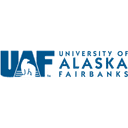Study how climate change affects the Arctic's air, sea, land, and communities through comprehensive research of interconnected systems.
Study how climate change affects the Arctic's air, sea, land, and communities through comprehensive research of interconnected systems.
This comprehensive course from America's Arctic University examines climate change in the circumpolar Arctic through the lens of four interconnected systems. Led by experts from the International Arctic Research Center, students learn about atmospheric science, marine ecosystems, terrestrial environments, and human impacts. The course integrates traditional knowledge with modern climate science, covering topics from climate modeling to indigenous perspectives on environmental change. Practical Arctic-focused examples and key scientific reports help students understand complex environmental systems and their interactions.
Instructors:
English
English, Spanish, French, 3 more
What you'll learn
Understand key climate and Arctic terminology and concepts
Analyze interactions between atmospheric marine and terrestrial systems
Evaluate climate change impacts on Arctic ecosystems and communities
Interpret scientific climate reports and policy documents
Examine human adaptation strategies in Arctic regions
Understand the role of traditional knowledge in climate science
Skills you'll gain
This course includes:
PreRecorded video
Graded assignments, exams
Access on Mobile, Tablet, Desktop
Limited Access access
Shareable certificate
Closed caption
Get a Completion Certificate
Share your certificate with prospective employers and your professional network on LinkedIn.
Created by
Provided by

Top companies offer this course to their employees
Top companies provide this course to enhance their employees' skills, ensuring they excel in handling complex projects and drive organizational success.





There are 4 modules in this course
This course provides a comprehensive examination of climate change in the Arctic region through four key systems: atmospheric, marine, terrestrial, and human. Students learn about fundamental climate concepts and their specific applications in the Arctic context. The curriculum covers crucial topics including atmospheric changes, ocean dynamics, permafrost, biodiversity, and human adaptation. Special emphasis is placed on understanding the interconnections between these systems and their collective impact on Arctic environments.
Change in our Arctic Atmosphere
Module 1 · 4 Hours to complete
Change On and Under the Waves
Module 2 · 4 Hours to complete
Our Changing Terrestrial Environment
Module 3 · 4 Hours to complete
The Human Element
Module 4 · 4 Hours to complete
Fee Structure
Instructors

1 Course
Distinguished Alaska Climate Expert and Science Communicator
Rick Thoman Jr. serves as a Climate Specialist at the Alaska Center for Climate Assessment and Policy (ACCAP) within the International Arctic Research Center, where he has established himself as Alaska's trusted source for climate information after more than 40 years in weather and climate across private, public, and academic sectors. His impact extends through multiple communication channels, including weekly radio spots across Alaska communities, newspaper columns, and social media platforms where he shares critical climate and weather information. His expertise has garnered widespread recognition, with his insights appearing in hundreds of news stories across 20 Alaskan communities, all U.S. states, and 42 countries worldwide. Through various platforms including the Alaska and Arctic Climate Newsletter on Substack, Mastodon posts about Alaska climate and Indigenous cultures, and dedicated Facebook groups, he reaches thousands of followers with tailored weather and climate information. Beyond media engagement, he conducts numerous presentations and webinars annually, including keynotes at major conferences such as the Western Alaska Interdisciplinary Science Conference and Alaska Forum on Environment. His dedication to climate science communication earned him recognition from NOAA after his 30-year career with the National Weather Service, highlighting his continued efforts to improve climate services in Alaska.

1 Course
Distinguished Arctic Climate Scientist and Global Change Expert
Dr. John Walsh serves as Chief Scientist at the International Arctic Research Center and holds the position of President's Professor of Global Change at the University of Alaska Fairbanks, where he has established himself as one of the most authoritative experts in modern Arctic climate change. His scholarly impact includes over 300 peer-reviewed publications, and he has authored significant portions of major climate reports including the Arctic Report Card, State of the Climate, National Climate Assessment, and IPCC assessments. His expertise spans Arctic climate, weather patterns, climate change adaptation, and sea ice dynamics, with particular focus on climate modeling and addressing regional vulnerabilities. His exceptional contributions to Arctic science have earned him prestigious recognitions including the 2022 Mohn Prize, the 2016 International Arctic Science Committee Medal, and the 2009 Emil Usibelli Distinguished Research Award
Testimonials
Testimonials and success stories are a testament to the quality of this program and its impact on your career and learning journey. Be the first to help others make an informed decision by sharing your review of the course.
Frequently asked questions
Below are some of the most commonly asked questions about this course. We aim to provide clear and concise answers to help you better understand the course content, structure, and any other relevant information. If you have any additional questions or if your question is not listed here, please don't hesitate to reach out to our support team for further assistance.



